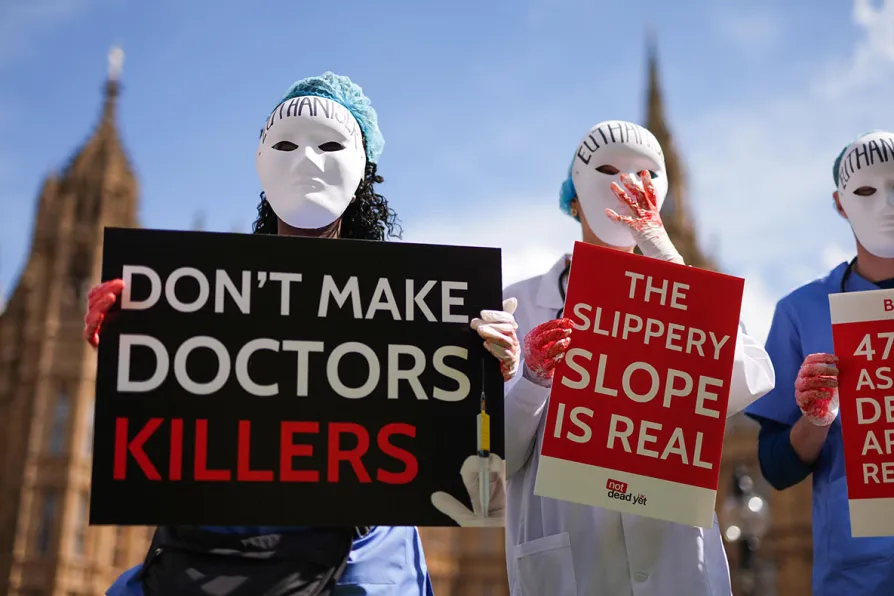
 Campaigners protest outside Parliament in Westminster, London, ahead of a debate in the House of Commons on assisted dying, April 29, 2024
Campaigners protest outside Parliament in Westminster, London, ahead of a debate in the House of Commons on assisted dying, April 29, 2024
ABOUT 1,000 doctors wrote to MPs today, warning that the assisted dying Bill is “deeply flawed” and urging them to vote against it.
The Terminally Ill Adults (End of Life) Bill, which applies to England and Wales, will return to the House of Commons for debate on Friday.
If passed in its current form, terminally ill adults with only six months left to live can apply for assistance to end their lives, depending on the approval of two doctors and an expert panel (the latter having replaced sign-off by a High Court judge as initially proposed).
The government does not have a formal position on the Bill.
Last month, an amendment was approved that would ensure that no health worker is under any obligation to participate in the process.
But in a letter, doctors have warned that the legislation ”poses a real threat to both patients and the medical workforce.”
It said: ”We are concerned that the private member’s Bill process has not facilitated a balanced approach to the collection of evidence and input from key stakeholders including doctors, people with disabilities and other marginalised groups.
”This Bill will widen inequalities, it provides inadequate safeguards and, in our collective view, is simply not safe.
”This is the most important piece of healthcare legislation for 60 years and we urge you to listen to the doctors who would have to deliver the consequences of this deeply flawed Bill.”
Ahead of last month’s Commons debate on the Bill, the Royal College of Physicians (RCP) said the Bill risks ”failing to protect vulnerable patients” and that proposed decision-making mechanisms were ”not in line with good clinical and professional practice.” It is also opposed by the Royal College of Psychiatrists.
The Royal College of Psychiatrists (RCPsych) also said it had “serious concerns,” including how psychiatrists would fulfil their responsibility to treat suicidal depression if it were legalised.
A sinister impact assessment predicted that through funding the assisted suicides, the NHS would save £59.6 million over a decade in “un-utilised healthcare,” in addition to £18.3 million in unpaid pensions and £3.17 million in unpaid personal independence payments.
It is understood that the vote on the overall legislation may not take place until Friday, June 20.










